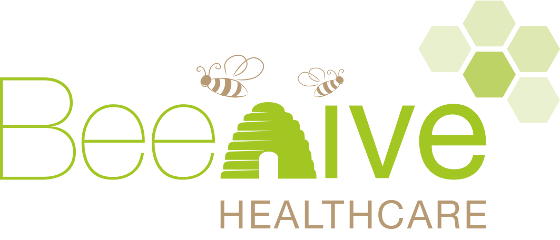
Most of us know someone affected, directly or indirectly, by cancer. Many reading this will know someone who is fighting this dreadful condition.
Current UK statistics show that the most common cancer diagnosed for women is breast and for men, prostate. Whilst the statistics on case numbers seem shocking, progression in medical research and availability of medical treatments and drugs means cancer is no longer the fatal diagnosis we used to consider it to be. We are discovering more and more ways to fight against it and it’s various causes. Among those causes we know that risk factors include many lifestyle choices such as smoking, exercise, diet and alcohol; environmental factors such as pollution or chemicals; stress plays a part as well as any genetic predisposition.
Advice to help reduce the risk of developing cancer includes, having a healthy diet, giving up smoking, doing physical exercise, maintaining a healthy weight and avoiding or properly managing excess stress and anxiety.
Reflexology and massage are very helpful in alleviating stress and anxiety. The impact in nerve stimulation and blood circulation enhances the immune system function and keeps the balance of the hormonal system, which strengthens your whole body and mind.
During the illness and treatment itself, reflexology and massage can help.
The Association of Reflexologists has reported very positive findings and clinical evidence:
"In the field of cancer care, in 2009 62% of cancer units in the UK provided reflexology and it was second only to counselling. This vulnerable and very unwell group have nothing but good things to say about reflexology, with the only complaint being lack of availability of appointments:
‘The improvement in my lower back pain has been staggering’
‘My sleep has improved and I feel relaxed and content’
‘I found having treatments helped me focus and be more positive and able to deal with incidents that made me feel fragile.’
When reflexology for cancer care was evaluated in a busy London hospital there was a 28% change in perceived well-being.
Even in a palliative care setting all participants felt their quality of life had improved and words such as relaxed and comforted were used while symptoms were reduced.
When considering mental health, a study in 2010 of reflexology and massage on the psychological effect of having breast cancer resulted in a statistically significant improvement in quality of life, even at one month after the completion of the intervention. This difference for reflexology was to a level that was calculated as being clinically worthwhile. While a small cross over trial (the patients were their own control) from America in lung and breast cancer patients showed that both groups of patients had a significant decrease in anxiety after reflexology."
(Fuller information and details of the studies can be found here))
A study, carried out by H. Hodgson, titled “Does reflexology impact on cancer patients’ “(Nursing Standard 2000; 14:33-38), shows that the participants who received reflexology benefited, besides comfort, in terms of quality of life, through improvements regarding nausea, pain, appetite, breathing, communication, concentration, constipation, diarrhoea, urination, fear of the future, isolation, mobility, mood, sleep and tiredness. When practicing reflexology on patients undergoing chemotherapy and/or radiotherapy it is recommended not to have reflexology session for at least 6 days following each chemotherapy/radiotherapy treatments: reflexology, having stimulating effects, could give the person side-effects which would not be welcome on top of those associated with chemotherapy/radiotherapy.
A reflexology or massage session with a person receiving treatment for a serious illness is practiced with light pressure, uses appropriate oils or essential oils and may be considerably shorter than usual sessions. Once the period of medical treatment is complete, the person can begin to regain their strength. Reflexology and massage can help with their recovery through this difficult period, helping them to rediscover their balance and energy. Then they can enjoy longer sessions of comforting treatments.
Who Offers Reflexology or Massage at Beehive?
 Lynsey McCabe offers reflexology and a range of massages including traditional thai, thai leg and foot, swedish and aromatherapy. She is also currently training to offer sports massage and is able to offer other footcare help in the form of medi-pedis. These include hard skin removal, toenail cutting, fungal nail treatment, non-surgical ingrown toenail treatment.
Lynsey McCabe offers reflexology and a range of massages including traditional thai, thai leg and foot, swedish and aromatherapy. She is also currently training to offer sports massage and is able to offer other footcare help in the form of medi-pedis. These include hard skin removal, toenail cutting, fungal nail treatment, non-surgical ingrown toenail treatment.
 Ming Xing Lin offers various forms of massage and reflexology alongside his acupuncture. His Tui Na Massage (a Chinese healing massage) is a deep tissue massage performed under a towel.
Ming Xing Lin offers various forms of massage and reflexology alongside his acupuncture. His Tui Na Massage (a Chinese healing massage) is a deep tissue massage performed under a towel.
 Sandra Leyland Williams is an experienced massage therapist and nutritional therapist. She offers aromatherapy massage, swedish massage and a specialist pain relieving massage which is particularly designed for inflammatory conditions such as rheumatic based arthritis.
Sandra Leyland Williams is an experienced massage therapist and nutritional therapist. She offers aromatherapy massage, swedish massage and a specialist pain relieving massage which is particularly designed for inflammatory conditions such as rheumatic based arthritis.
To make an appointment or arrange an email or telephone consultation with any of the above, please contact us here at Beehive Healthcare: 01244 915603, info@beehivehealthcare.co.uk









